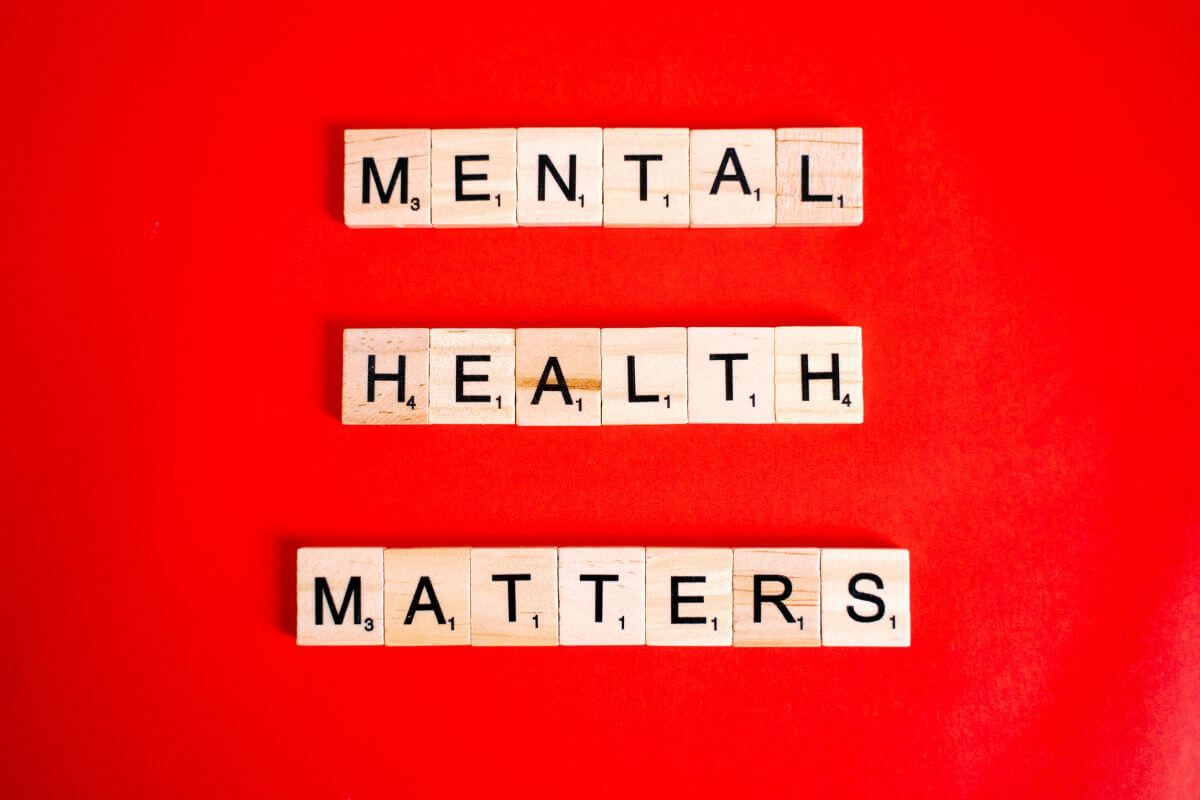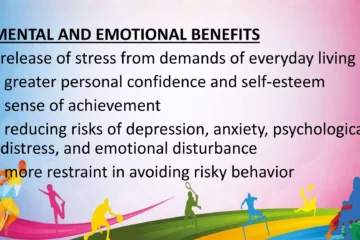“how to get mental health help for someone who doesn’t want it”
Navigating the complexities of mental health can be challenging, especially when it comes to helping someone who is struggling but resistant to seeking help. Whether it’s a friend, family member, or colleague, wanting to support someone you care about can lead to feelings of frustration and helplessness if they refuse assistance. However, there are constructive approaches you can take to encourage them toward seeking help without pushing them away. This article will explore effective strategies to support someone who doesn’t want mental health help.
Understanding Their Perspective
Empathy is Key
Before taking any steps, it’s crucial to understand the individual’s perspective. Mental health issues can lead to feelings of shame, fear, and isolation. People may not seek help for various reasons, including:
- Stigma: They may fear being judged or misunderstood by others.
- Lack of Awareness: They might not recognize the severity of their situation or believe they need help.
- Fear of Change: Change can be daunting, and the idea of confronting their issues may feel overwhelming.
- Past Experiences: Previous negative encounters with mental health services can lead to resistance.
Listening and showing empathy can create a space where they feel heard and understood. This is a crucial first step in helping them consider the possibility of seeking help.
Educate Yourself
Understanding mental health issues can equip you with the knowledge to discuss concerns with the individual effectively. Research the specific mental health condition they may be facing, common symptoms, and treatment options. This knowledge can also help you answer questions or concerns they may have about seeking help.
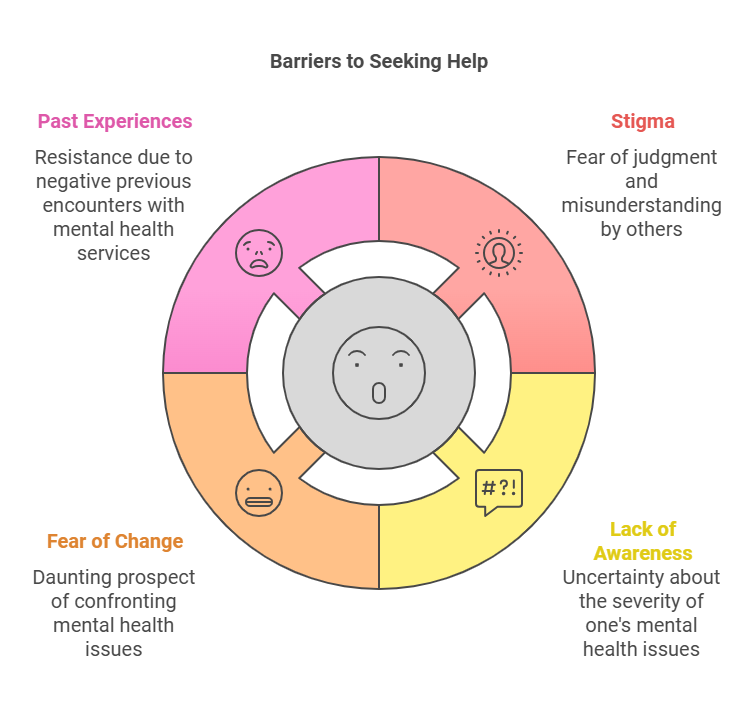
Opening the Conversation
Choose the Right Time and Place
Timing is essential when discussing sensitive topics. Find a calm, private environment where the person feels safe and comfortable. Avoid bringing up the topic during stressful moments or conflicts. Instead, choose a time when you both can have an open and honest conversation.
Use “I” Statements
When expressing your concerns, use “I” statements to avoid sounding accusatory. For example, instead of saying, “You need to get help,” try, “I’ve noticed you’ve been feeling down lately, and I’m worried about you.” This approach emphasizes your concern rather than making them feel defensive.
Be Honest but Compassionate
Share your observations and feelings honestly, but approach the conversation with compassion. Let them know you care about them and want to support them. Avoid making it about their behavior; instead, focus on how their struggles affect you and others around them.
Offering Support
Encourage Small Steps
If the person is resistant to seeking professional help, encourage them to take small steps towards improving their mental health. This could include:
- Journaling: Writing down thoughts and feelings can help them process emotions.
- Mindfulness: Practicing mindfulness or meditation can provide immediate relief and help them become more open to discussing their feelings.
- Physical Activity: Engaging in regular exercise can significantly improve mood and mental clarity.
Suggest Resources
Sometimes, people may feel overwhelmed by the thought of seeking help. You can assist by suggesting resources such as:
- Books or articles on mental health topics.
- Support groups that provide anonymous help and connection with others who share similar experiences.
- Online therapy services that offer a more discreet way to access help.
Offer to Accompany Them
If they express willingness to seek help, offer to accompany them to appointments or support groups. This can alleviate anxiety about the process and make it feel less daunting. Let them know you’re there to support them, not to push them into something they aren’t ready for.
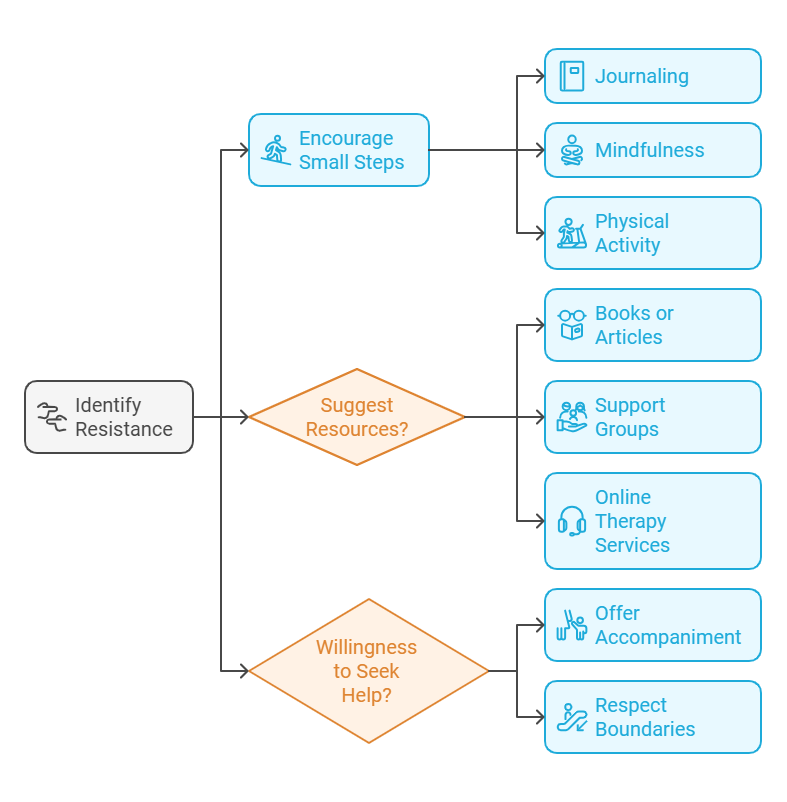
Navigating Resistance
Respect Their Autonomy
Ultimately, it’s essential to respect the individual’s autonomy. You can provide support and encouragement, but you cannot force someone to seek help. Pushing too hard can create resistance and damage your relationship. Acknowledge their right to make their own decisions about their mental health.
Set Boundaries for Yourself
While it’s important to support someone you care about, you must also set boundaries to protect your well-being. Supporting someone struggling with mental health can be emotionally taxing. Ensure you have your own support system in place, whether through friends, family, or a mental health professional.
When to Seek Professional Help
Recognize Warning Signs
In some cases, a person’s mental health condition may pose a risk to their safety or the safety of others. If you notice warning signs such as:
- Suicidal thoughts or behaviors
- Self-harm
- Substance abuse
- Aggressive or dangerous behavior
It’s crucial to intervene. In such situations, you may need to seek professional help on their behalf. Contact a mental health professional, crisis hotline, or emergency services if necessary.
Involve Trusted Individuals
Sometimes, involving other trusted friends or family members can help convey the seriousness of the situation. A group approach may help the person feel less isolated and more supported.
Long-Term Support
Be Patient
Change takes time, and recovery is not linear. Be patient with the individual and continue to offer your support. Celebrate small victories and be there during setbacks. Your ongoing presence can make a significant difference in their journey toward better mental health.
Continue Educating Yourself
Mental health is a continually evolving field. Staying informed about new therapies, coping strategies, and resources can help you provide better support and encouragement over time.
Encourage Professional Help Without Pressure
While it’s essential to encourage seeking professional help, avoid putting pressure on them. You can express the benefits of therapy or counseling, but let them come to their own decision in their time.
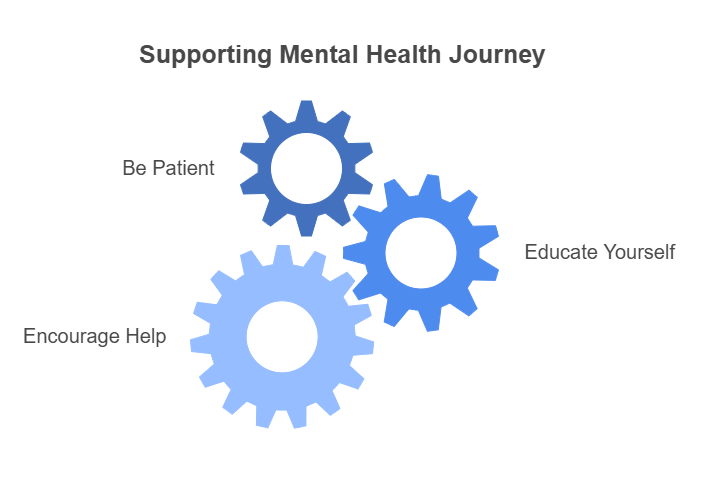
Conclusion
Helping someone who doesn’t want mental health assistance can be a challenging journey filled with ups and downs. However, with empathy, understanding, and patience, you can encourage them to take steps toward better mental health. Remember, your role is to support, not to force, and every small step counts. By being a compassionate ally, you can help them feel less alone in their struggles and gradually open the door to the possibility of professional help.

“As the voice behind Radiant Glow Health, we are dedicated to being your ultimate wellness and vitality companion. Our mission is to inspire and guide you on your journey to a healthier and more vibrant life. Join us as we explore holistic health practices and empower you to radiate wellness from within.”
